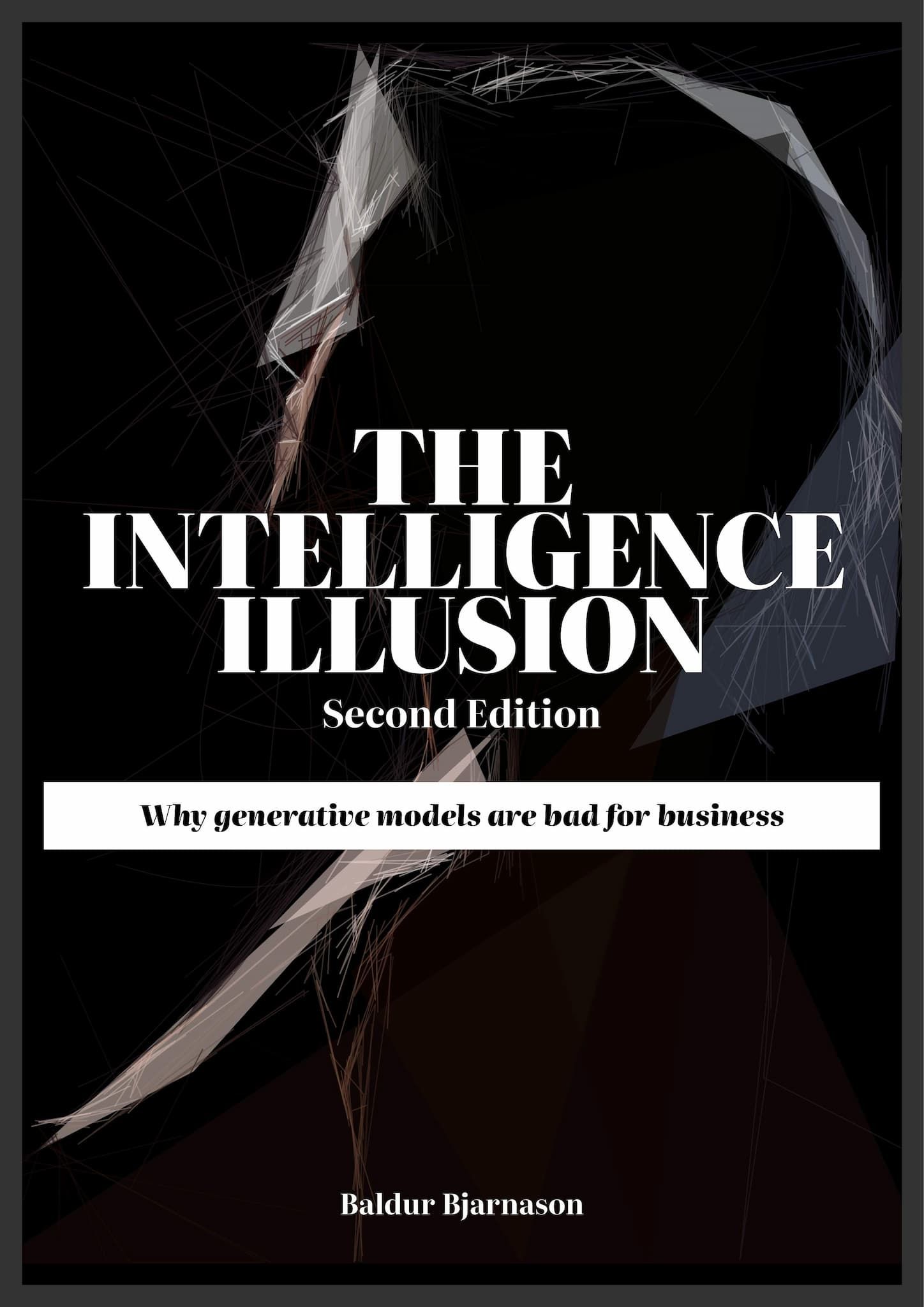Bad Business AI: Channel 1
I’ve avoided writing about “AI” for a while for a number of reasons:
- The people who should be listening aren’t.
- The people who are listening don’t need convincing.
- The people who are actively responsible for the worst practices don’t care. At all.
- It attracts quite a bit of nonsense in the form of uninformed “debates” where randos argue at me about things I’ve researched to a much greater extent than they have.
- Trying to counter the mythology and misdirections of a bubble is a full-time job and has a high risk of chewing you up.
It’s not a really satisfying state of affairs.
However, there is an angle to all of this that I haven’t seen others take and might be worth pursuing:
Most of the new AI ventures we’re seeing are horrendously bad business ideas.
In between the iron hammer of established tech monopolies flattening the software scene into something that can be slipped into a chatbot text box and the grossly unethical surveillance machinery they’re racing to implement, we find an old tech industry staple: grand business ventures by people who genuinely don’t have a clue about what they’re doing.
This was, honestly, the only fun aspect of the dot-com bubble and the only bearable part of the cryptocoin one, exemplified by Fucked Company and Web 3 is Going Just Great respectively.
I don’t know yet whether AI is going to be as generous with bad business ideas as those earlier bubbles – this particular bubble is dominated by established tech monopolies after all – and VCs air-dropping metric tons of cash are quite capable of subsidising awful ideas into the semblance of success.
But making fun of some of the obviously shittier ideas should be a welcome distraction from the general awfulness of seeing friends, acquaintances, and most of the industry go all-in on a deeply unethical financial bubble dominated by some of the worst companies in the history of tech.
The hallmark of a bad bubble business is that it has to leave you with a seed of doubt: is it real or is it parody?
Web 3 and Cryptocoins provided that in spades. As did the dot-com bubble.
But most of the “AI” bubble has been tediously mundane:
- Write your emails faster!
- Get a bot to write boring explanations of boring code that you shouldn’t have to write, but will because some manager said so!
- Get your cringeworthy PowerPoint slides done faster!
- Get research that none of your coworkers care about and nobody will fact-check – because ultimately your job is a meaningless bullshit routine where your daily routine is to act like a dung beetle doing an art installation on Sysiphus, every day you roll balls of shit up a hill – piles of manure inches from your face every second of your waking life.
Fun stuff. So much to be enthusiastic about. Not much there to make fun of, yet.
Because we can always count on Venture Capitalists when it comes to poorly thought-out business ideas.
Enter Channel 1 #

A newly created news channel presented entirely by artificial intelligence avatars has been revealed. Channel 1 is launching in February and includes virtual anchors and reporters, but to showcase what is possible its owners released a demo episode on X and its own website.
The idea is fairly straightforward. You know how the biggest cost centre for a news outlet are the talking heads on the screen, stock videos, and translating foreign news items into your local language, and you know how there aren’t any existing free or cheap news outlets for most of the world? Well if you automate the talking heads and the translation, you can offer cheap news content to the world! Easy money, ri—
Excuse me… Puts finger in an ear, pretending to listen to an incoming editorial note.
—What do you mean? The talking heads and the stock videos aren’t a cost centre for a news outlet?
—What about translations? Surely that’s so prohibitively expensive that most of the non-English world has had to go without news in their local language?
—But we all know that Americans don’t get much news from non-English areas of the world. That has to be a translation thing? It’s a cultural thing, you say.
—There has to be a lot of money in news? Right. I see. It’s getting bought and shut down everywhere because the economics of news are inherently garbage. Everybody already has access to news sources that are effectively free.
Shuffles some imaginary papers.
Well, turns out this is an extremely poor idea.
This is solving a bunch of problems that don’t exist, a few that do but in a way that is quite useless, and it lacks anything resembling a sensible business model.
Why would anybody want to get Reuters and AP repackaged for $19 bucks a year when those same items are available in pretty much any language and region in the world for free?
Even if their “AI” tools lowered costs – bear in mind that non-celebrity humans are remarkably cheap and “AI” is remarkably expensive – news is not a good business to enter.
- Too many established names with entrenched businesses.
- Too many channels subsidised by cable packages in the US.
- Many offerings that are free with ads that more than satisfied people’s needs.
It’s a bad business to enter.
This isn’t a case of “AI” replacing entry-level tasks that are largely incidental to a business’s success, like blog post illustrations or writing internal email, or the masturbatory CEO fantasies that are your sales copy.
Nor is it attempting to replace a cost centre with cheaper automation.
It’s attempting an automated replacement of services people are already either getting for free or are generally satisfied with.
Worse, Channel 1 is attempting to directly compete with well-liked brands by deliberately commodifying their own offering.
And the example of doing live translations of regional news items misunderstands the problem people might have with news items in foreign languages.
We already get those, usually with a voiceover translation.
Live “AI” translations, with lip synch and accents and all, makes it sound like those news items and disasters were happening in your backyard. It’s as serious a misrepresentation of the news item as a generative model image would be.
The translation voice over or subtitles (whichever is the cultural norm in your region), while keeping the original underneath, serves the purpose of highlighting that it’s happening somewhere else and not to somebody from your region.
If they interview somebody who speaks your language, that’s because that’s the story (“Brits caught in French storm”). If they interview somebody who doesn’t speak your language, that’s because that’s also the story (“tourists fleeing a town threatened by earthquakes”).
It may sound parochial and nationalistic, but it’s how news programs work.
We’re going to see a lot more irrational business ventures in AI over the next few years. Channel 1 is going to last a long, long time. They had the sense of starting early in the bubble. They have enough contacts to get deals with established names. (Remember Theranos got a sweetheart deal with Walgreens.) They will probably raise enough money to last them several years, even with an inflated “look Ma, I’m a tech executive, I have a lambo!” dick-waving salary.
Solve problems customers don’t have, at prices they aren’t willing to pay, all using some of the most computationally intensive and expensive software approaches invented by humanity.
That’s the tech industry mantra.
We’re in for a wild ride, folks.

What are the major business risks to avoid with generative AI? How do you avoid having it blow up in your face? Is that even possible?
The Intelligence Illusion is an exhaustively researched guide to the business risks of language and diffusion models.
